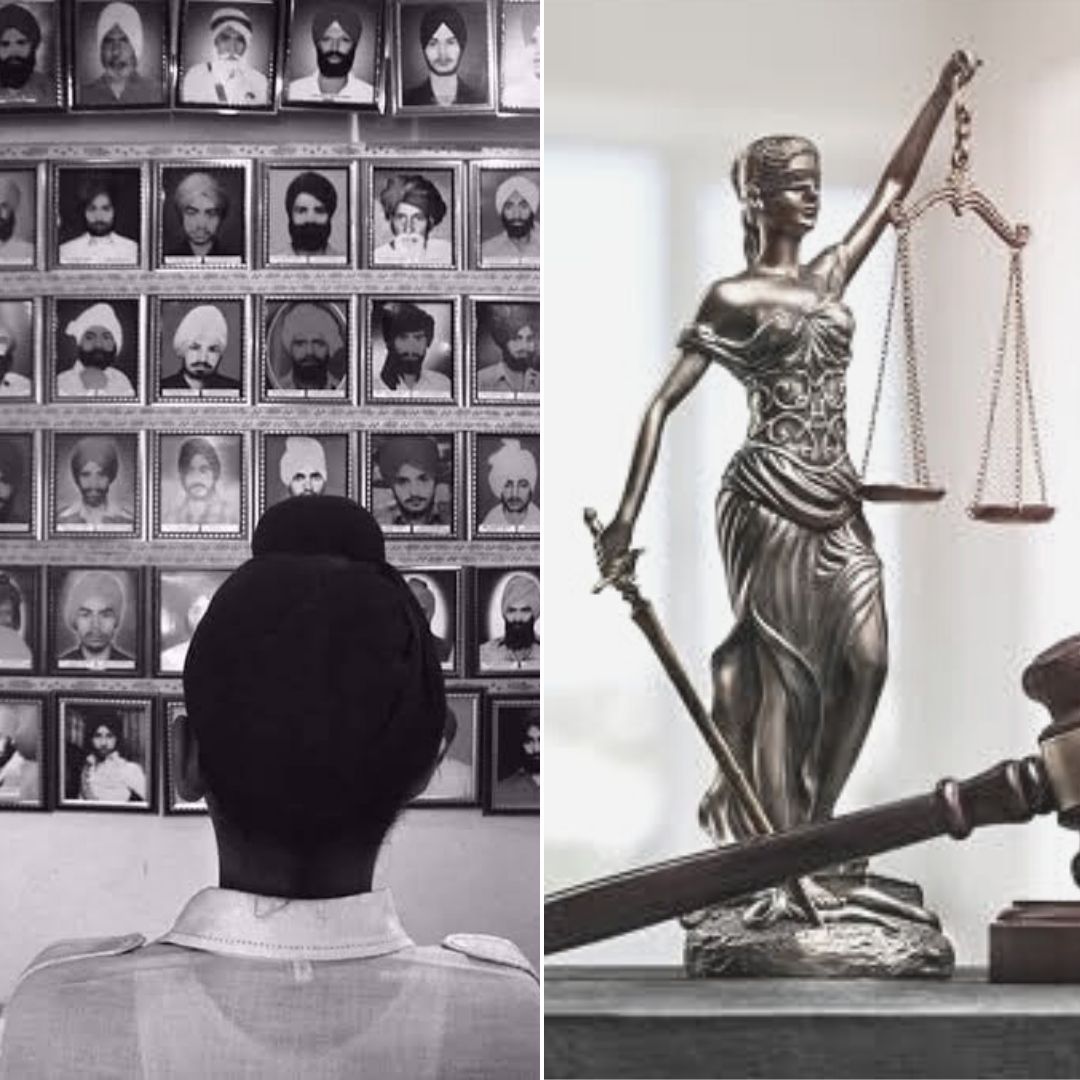'Nation Is Still Bleeding', Court Finds Retired Cop Punishable For Not Preventing 1984 Anti-Sikh Killings
Writer: Laxmi Mohan Kumar
She is an aspiring journalist in the process of learning and unlearning many things. Always up for discussions on everything from popular culture to politics.
Delhi, 13 Sep 2022 9:24 AM GMT
Editor : Snehadri Sarkar |
While he is a massive sports fanatic, his interest also lies in mainstream news and nitpicking trending and less talked about everyday issues.
Creatives : Laxmi Mohan Kumar
She is an aspiring journalist in the process of learning and unlearning many things. Always up for discussions on everything from popular culture to politics.
The Delhi High Court found a retired police officer to be responsible for not preventing several mass killings in Delhi during the 1984 Anti-Sikh Riots. Ruling against him, the bench denied him any benefit of old age in the legal space for his misconduct.
The 1984 Anti-Sikh Riots were a series of organised pogroms against the Sikhs in the country following the assassination of the then Prime Minister Indira Gandhi by her Sikh bodyguards. As per Government records, about 2,800 Sikhs were killed in Delhi alone during the time.
Nationwide killings vary from 3,350 on government records and 17,000, according to independent sources. The riots and mass killings were condemned by several International bodies, who called it a grave violation of human rights.
Observing that the "nation is still bleeding" years after the anti-Sikh riots, the Delhi High Court on September 12 looked into the case of a retired police officer who allegedly failed to contain the riots.
A bench headed by Chief Justice Satish Chandra Sharma noted that the retired officer had the provisions to deploy forces and prevent the killings to an extent. His failure to conduct his duties led to the loss of several lives, and he cannot "get away" with it on any account, ruled the court.
Punishable By Law Even If They Are A Hundred Years Old
A disciplinary authority, along with the Central Administrative Tribunal, passed an order against the retired station house officer of Kingsway Camp police station for misconduct during the anti-Sikh riots. NDTV reported that the charges were pressed on the grounds that he allegedly failed to deploy adequate forces, make preventive detentions, or take action to break up mobs during the violence.
Challenging this order, the retired officer has moved to the high court in appeal, saying that he was only granted a "post-decisional hearing" in the matter. This refers to a hearing by the adjudicating authority before having come to a decision about a case.
Hearing the case, Chief Justice Satish Chandra Sharma set aside the orders passed by the disciplinary authority and found that the charges pressed against the petitioner were serious. Granting liberty to the disciplinary authority to issue a "fresh note of disagreement", he asked the petitioner to present a response to it within a period of four weeks.
The court was of the opinion that the riots led to the loss of several innocent lives, and those who were responsible for it on any level "cannot get away". Arguing against the account of his advanced age of 79 years, the court observed, "He may be 100 (years old)...the nation is still bleeding. On that ground, you cannot get away. Age will not help."
Having said this, the court granted liberty to the disciplinary authority to issue an "appropriate order of punishment" against the retired city police officer. The bench ruled that the authority would be free to pass an order in accordance with the law, keeping in view his date of retirement and pension rules, as the petitioner is at the age of superannuation (retirement fund).
Also Read: Revisiting The Gruesome History Of Anti-Sikh Riots Of 1984 And What Happened After It
 All section
All section















